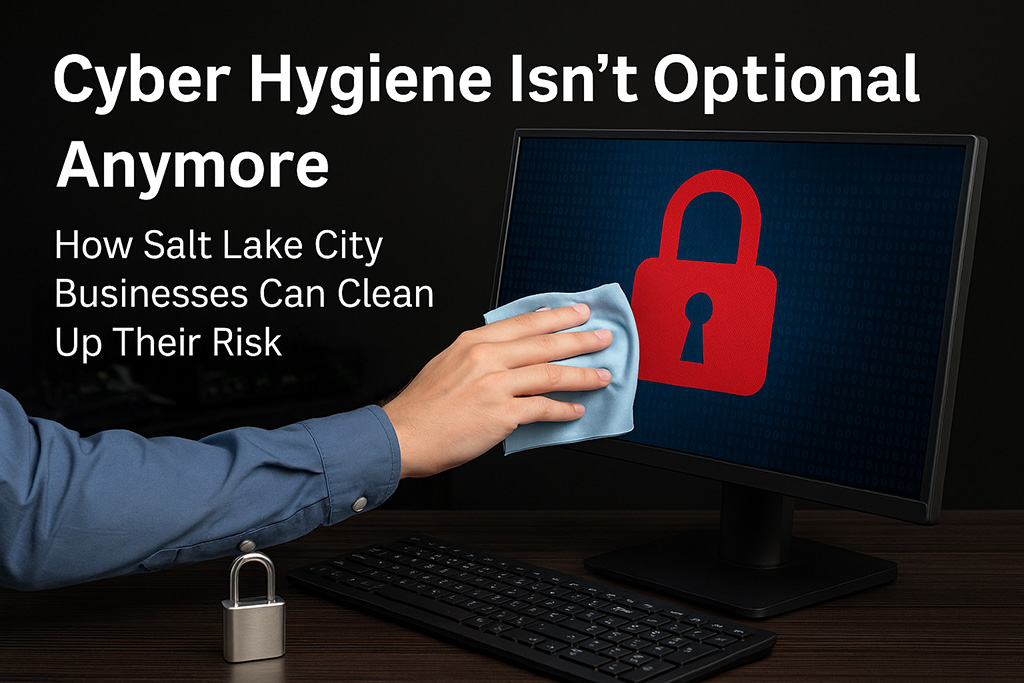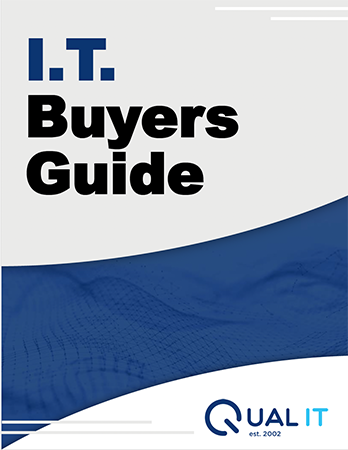 What CPA Firms Need To Know About Basic IT Security
What CPA Firms Need To Know About Basic IT Security
Let’s be honest—compliance is already a full-time job. Now layer in IT, data protection, cloud backups, and cyber risk? It’s no wonder Salt Lake City CPA firms are feeling the heat. But here’s the deal: the firms that will thrive in this high-stakes environment are the ones that treat cybersecurity like the core business risk it is—not an afterthought.
A staggering 82% of data breaches in 2023 involved cloud-stored data. Most could’ve been avoided with stronger foundational safeguards.
That’s where "cyber hygiene" comes in. Think of it as digital handwashing. It’s not flashy, but it keeps your practice clean, compliant, and protected when it matters most.
If your firm is searching for managed IT services for CPA firms in Salt Lake City, here are four critical cyber hygiene practices you can’t afford to ignore:
1. Lock Down Your Network
In a profession that deals with tax records, payroll data, and financial statements, your network is a goldmine for cybercriminals.
Start by encrypting all sensitive transmissions and setting up a business-grade firewall. Never use a consumer router in a firm handling client data. Your wireless network should be hidden (SSID turned off) and password-protected using WPA3 encryption. And for any remote CPAs or staff working from home, a VPN isn’t optional—it’s mandatory.
Looking for network services providers who understand Salt Lake’s CPA compliance standards? That’s our specialty.
2. Educate Your Staff—Because Human Error Is Still the #1 Threat
Even the best tech won’t save you from a poorly timed click on a phishing email. Your team should be trained regularly on how to recognize cyber threats like spoofed IRS emails, suspicious downloads, and bogus DocuSign links.
At Qual IT, we build training specifically for CPA firms, including:
- Phishing simulations
- Password management policies
- Multifactor authentication enforcement
- Data handling procedures based on AICPA standards
These aren't "nice to haves" anymore—they’re required for any firm taking cyber liability insurance seriously.
3. Back Up Like Your Business Depends On It (Because It Does)
Think about the worst-case scenario—ransomware during tax season. Would you survive it?
Regular, automated backups are your last line of defense. You should be backing up:
- Client financials
- Tax prep files
- Cloud-hosted accounting platforms (like QuickBooks Online or CCH)
- HR and payroll records
And you need multiple backup locations—onsite and offsite (or cloud). CPA firms in Salt Lake City need IT providers that not only implement backups but also test the recovery process regularly.
4. Limit Who Can Access What
This is a core principle of IT security—least privilege access. No one employee should have keys to the kingdom.
Make sure your systems restrict:
- Admin privileges (only to trusted IT staff or managing partners)
- Client folder access (only to relevant team members)
- Former employee logins (should be immediately deactivated at offboarding)
We see firms all the time that are unknowingly vulnerable just because they haven’t audited user access. It’s a simple fix with massive risk reduction.
Taking Security Seriously Now = Fewer Headaches Later
We get it—implementing this stuff can feel like one more thing on your plate. But ignoring it? That’s how CPA firms end up with downtime in April, lawsuits from data exposure, or fines from the IRS or state bar.
Salt Lake City firms need IT support built specifically for compliance-heavy industries—and that’s exactly what we do.
Let’s Find the Gaps Before Hackers Do
If you’re unsure whether your current IT setup would pass a real-world stress test, it’s time to find out. Our Free Cybersecurity Network Assessment will:
- Expose hidden risks in your system
- Identify outdated or missing security controls
- Give you a CPA-specific action plan to secure your firm
Click here to book your FREE network assessment and let’s close the gaps—before tax season hits.



